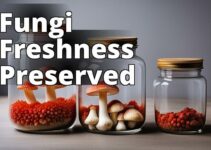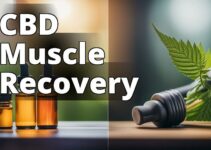In the world of CBD, one burning question often comes to mind: how quickly can one expect to feel relief after taking CBD, and how long does the effect typically last? Well, let's dive right in and find out!
Picture this: you've decided to give CBD a try, whether for pain relief, anxiety, or just to relax. But you're eager to know when you'll feel that blissful relief. The good news is that CBD works its magic pretty quickly, usually within 15 to 30 minutes after ingestion.
But wait, there's more! The duration of the effect can vary depending on factors like dosage, body chemistry, and the method of consumption you choose. On average, you can expect the effects of CBD to linger for about 2 to 6 hours. Hey, that's plenty of time to enjoy the benefits and go about your day!
So, whether you're seeking relief from discomfort or simply seeking a moment of tranquility, CBD has your back. In just a short while, you'll start feeling the effects and enjoy the goodness that CBD brings. But remember, everyone's experience might be a little different, so listen to your body and find what works best for you. Get ready to embark on a CBD journey and welcome the relief you've been waiting for!
How Quickly Can One Expect to Feel Relief After Taking CBD, and How Long Does the Effect Typically Last?
CBD, or cannabidiol, has gained significant popularity in recent years for its potential health benefits. Many individuals turn to CBD as a natural remedy for various conditions, such as chronic pain, anxiety, and insomnia. However, one common question that arises is how quickly one can expect to feel relief after taking CBD and how long the effects typically last. In this article, we will delve into this topic and provide you with detailed information to help you understand the timeline and duration of CBD's effects.
Understanding the Absorption of CBD: How It Works in the Body
When you consume CBD, whether through oils, tinctures, edibles, or topicals, it interacts with the endocannabinoid system (ECS) in your body. The ECS is a complex network of receptors and neurotransmitters that help regulate various functions like pain perception, mood, sleep, and immune response.
After ingestion, CBD is absorbed into the bloodstream through the digestive system or the lungs if inhaled. The CBD molecules then travel to various tissues and organs, including the brain, where they bind to ECS receptors. This interaction triggers a cascade of biochemical reactions that contribute to the potential therapeutic effects of CBD.
The speed at which you feel the effects of CBD and how long they last depends on multiple factors, including the method of consumption, dosage, individual metabolism, and the specific ailment you're targeting. Let's explore these factors in more detail.
Factors Influencing Onset and Duration of CBD's Effects:
The Method of Consumption: How You Take CBD Matters
The method of consumption plays a crucial role in determining how quickly CBD takes effect and how long it lasts. Here are some common methods and their respective timelines:
1. Sublingual Administration: When CBD oil or tincture is placed under the tongue, it is absorbed directly into the bloodstream through the sublingual glands. This method offers faster effects because the CBD bypasses the digestive system. Onset usually occurs within 15-30 minutes, with effects lasting 2-4 hours.
2. Inhalation: Vaping or smoking CBD allows it to enter the bloodstream quickly via the lungs. The effects are typically felt almost immediately, within minutes, but they may wear off within 1-3 hours. Inhalation offers rapid but short-lived relief.
3. Oral Consumption: Consuming CBD edibles, capsules, or other oral forms leads to slower absorption since the CBD must pass through the digestive system before entering the bloodstream. Onset of effects usually takes 30 minutes to 2 hours, with durations ranging from 4-6 hours.
4. Topical Application: Applying CBD-infused creams, lotions, or balms directly to the skin has localized effects. While absorption into the bloodstream is minimal, CBD can interact with local cannabinoid receptors. Onset typically takes 15-45 minutes, and effects can last up to 5 hours.
Dosage and Individual Metabolism: Personal Factors That Influence CBD's Effects
The dosage of CBD and individual metabolism are crucial factors that affect the onset and duration of its effects. The optimal dosage varies for each person based on factors such as body weight, tolerance, and the severity of the condition being targeted.
Generally, starting with a low dose is recommended to gauge your body's response and gradually increase as needed. A higher dose may lead to faster onset and longer-lasting relief, but it's essential to find the right balance to avoid any potential side effects.
Individual metabolism also plays a role in how quickly CBD is metabolized and eliminated from the body. Factors such as age, genetics, liver function, and overall health can influence how long the effects of CBD last. A slower metabolism may prolong the duration of CBD's benefits, while a faster metabolism may result in quicker elimination.
Factors Influencing the Bioavailability of CBD:
Bioavailability Explained: The Amount of CBD Your Body Can Utilize
Bioavailability refers to the percentage of CBD that actually enters the systemic circulation and is available for use in the body. Different methods of consumption have varying levels of bioavailability, affecting the overall efficacy and duration of CBD's effects.
Here are some common methods and their approximate bioavailability rates:
1. Sublingual Administration: Offers high bioavailability of around 20-30% due to efficient absorption through the mucous membranes under the tongue.
2. Inhalation: Inhalation has high bioavailability, ranging from 30-50%, as CBD directly enters the bloodstream via the lungs.
3. Oral Consumption: CBD consumed orally has lower bioavailability (around 10-20%) because it must first pass through the digestive system and be metabolized by the liver.
4. Topical Application: While topicals provide localized relief, they have minimal bioavailability as CBD primarily interacts with local receptors and does not enter the bloodstream significantly.
Understanding the bioavailability of different methods can help you choose the most effective consumption method for your specific needs.
How Long Do the Effects of CBD Last in Different Individuals?
Duration of CBD's Effects: What to Expect
The duration of CBD's effects can vary from person to person and depend on several factors, including the method of consumption, dosage, and individual characteristics. While the effects of CBD generally last between 2-6 hours, it's important to note that the intensity and duration may vary based on personal factors.
For sublingual and inhalation methods, where CBD is directly absorbed into the bloodstream, the effects may be felt more quickly but tend to wear off faster. On the other hand, oral consumption offers longer-lasting effects since the CBD is released gradually by the digestive system.
It's worth noting that regular CBD use over time can lead to cumulative benefits as CBD builds up in the body, potentially resulting in more prolonged relief.
Summing it Up: Factors to Consider for CBD's Onset and Duration
In summary, the onset and duration of CBD's effects can vary based on several factors. These include the method of consumption, dosage, individual metabolism, and the specific ailment being addressed. Sublingual administration and inhalation typically offer faster onset but shorter-lived effects, while oral consumption provides a slower but longer-lasting experience. It's essential to experiment with different methods and dosages to find what works best for you.
Remember, everyone's experience with CBD is unique, and what works for one person may not work the same for another. It's recommended to start with a low dosage, observe how your body responds, and make adjustments accordingly. Consulting with a healthcare professional or CBD expert can also provide personalized guidance.
Ultimately, finding the right combination of factors that optimize your CBD experience is a personal journey. By understanding the absorption process, considering dosage and individual metabolism, and being aware of bioavailability rates, you can make informed decisions to maximize the benefits of CBD and potentially find relief for your specific needs.
Key Takeaways: How quickly can one expect to feel relief after taking CBD, and how long does the effect typically last?
- Upon taking CBD, relief can be felt as quickly as 15-30 minutes.
- The duration of CBD's effects can vary, typically lasting 2-6 hours.
- The method of consumption, dosage, and individual body chemistry can influence how quickly and long the effects last.
- It's important to start with a low dosage and gradually increase to find the optimal relief and duration for your unique needs.
- Consult with a healthcare professional to determine the appropriate CBD dosage and timing for your specific condition or symptoms.
Frequently Asked Questions
Are you curious about how quickly you can feel relief after taking CBD and how long the effects typically last? Look no further, as we have gathered some answers to your burning questions below.
1. How soon can I expect to feel relief after taking CBD?
When it comes to feeling the effects of CBD, it can vary from person to person. Some may experience relief within minutes, while others may take a bit longer. Factors such as your body's metabolism, the form of CBD you are taking, and the dosage can all play a role in how quickly you feel the effects. It is recommended to start with a lower dose and gradually increase if needed, as this can help you gauge how your body responds to CBD.
In general, when consumed orally, CBD can take approximately 30 minutes to 2 hours to kick in. However, sublingual methods, such as placing CBD oil drops under your tongue, may offer quicker results, sometimes within 15 minutes. It is important to note that everyone's body is unique, so it's best to be patient and give your body time to respond to the CBD.
2. How long does the effect of CBD typically last?
The duration of CBD's effects can vary depending on several factors. The dosage, the method of consumption, and individual body chemistry all play a role in how long the effects of CBD last. Generally, the effects of CBD can last anywhere from 2 to 6 hours. However, it's important to keep in mind that each person's experience may differ.
If you are new to using CBD, it may be helpful to monitor how long the effects last for you personally. This can help you determine the optimal time to take another dose if needed. It's also worth noting that if you are using CBD for ongoing relief, regular and consistent use may be more effective in maintaining its benefits throughout the day.
3. Can other factors affect how quickly CBD works and how long it lasts?
Yes, there are several factors that can influence how quickly CBD works and how long its effects last. Firstly, the method of consumption plays a role. For example, inhaling CBD through vaporization or smoking can lead to quicker effects compared to consuming it orally. Additionally, the bioavailability of CBD can vary depending on the method of consumption.
Furthermore, individual factors such as body weight, metabolism, and tolerance to CBD can affect how quickly CBD works and how long its effects last. People with a higher body weight or slower metabolism might experience a delayed onset of CBD's effects. Additionally, those who have been using CBD for an extended period may develop a tolerance, which could require higher doses for the same effects.
4. Is there a difference in how long the effects of different CBD products last?
Yes, the type of CBD product you choose can impact how long the effects last. CBD products come in various forms, such as oils, capsules, edibles, topicals, and more. Each of these has a different rate of absorption and duration of effects.
For example, when taking CBD oil orally, it usually takes longer for the effects to kick in, but they may last longer compared to vaping CBD. On the other hand, vaping CBD can provide faster effects, but they might not last as long. The method of consumption and the specific product you choose should be considered when determining how long the effects will last.
5. Can the dosage of CBD affect how quickly it works and how long the effects last?
Absolutely, the dosage of CBD can greatly influence how quickly it works and how long the effects last. Finding the right dosage is crucial to optimizing your CBD experience. Starting with a low dose and gradually increasing can help you gauge how your body responds and find the most effective dosage for you.
If you take a higher dosage, you may experience more immediate effects, but they may also wear off sooner. Conversely, lower dosages may take longer to kick in, but the effects could potentially last longer. It's important to find the balance that works for you and to listen to your body's response when adjusting your CBD dosage.
When You Use CBD Every Day, This Is What Happens To Your Body
Summary
When taking CBD, relief can be felt within 15 to 30 minutes, but it varies for each person. The effects typically last between 2 to 6 hours, depending on factors like dosage, metabolism, and the individual's body chemistry. It's important to start with a low dose and gradually increase if needed. CBD may provide relief for various conditions, but it's always best to consult a healthcare professional for advice.
In conclusion, CBD can offer relief within a short time, but its effects don't last all day. It's important to find the right dosage and consult a professional for guidance. Remember, everyone's experience with CBD may differ, so listening to your body is key.




